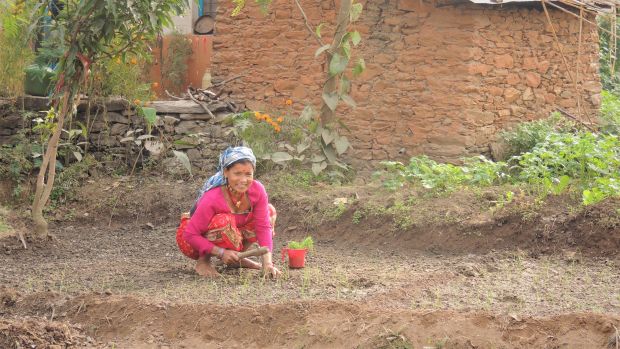Progress and difficulties of an anachronistic yet developing agricultural system
“Control over the means of production by a small landowning aristocracy with political, ideological and economic power over a peasant majority,” is how Karl Marx defined feudalism. His definition still has relevance a century later and a continent away – in the modern day agricultural structure of the territory encompassing southeast Nepal and Bihar, India.

Fraser Sugden from the International Water Management Institute (IWMI) analyzed this region in an article entitled A mode of production flux: The transformation and reproduction of rural class relations in lowland Nepal and North Bihar published in the journal Dialectical Anthropology. In the article, Sugden points to the striking clash of semi-feudalism within a hyper-globalized labor market, deeming the situation, “a classic articulation between the pre-capitalist and capitalist.” Among the prolific landlordism and debt-bondage, out-migration to the gulf countries flourishes, and capitalist markets expand.
Progress, though, is not stagnant. While usury is still rampant, debt-bondage to single land owners is less common, and some landlord estates are breaking up. This poses challenges and opportunities. Landowners and large farmers increasingly invest in technologies such as irrigation pump sets and tractors which are not for their own use, but to rent out to others (for a high fee), thereby maintaining their economic position while often discouraging agricultural intensification by tenant farmers. Women, who increasingly manage the land, face considerable constraints in accessing the equipment for irrigation, which is even more important at a time of climate stress.
At the same time, absentee landlordism is on the rise, leading to further constraints for irrigation and other productive investments on the land. Sugden points, however, to increased political awareness of landless farmers as a result of migration and political transformations in recent years. He suggests that the collectivization of small farmers may provide a pathway to “a more equitable social formation,” increasing access to irrigation and allowing marginal and tenant farmers the opportunity to consolidate holdings and achieve economies of scale.
This pilot study is already under way through the Improving dry season irrigation for marginal and tenant farmers in the Eastern Gangetic Plains project, which is funded by the Australian Centre for International Agricultural Research (ACIAR).
Read the article:
Sugden, F. 2016. A mode of production flux: The transformation and reproduction of rural class relations in lowland Nepal and North Bihar. Dialectical Anthropology. DOI: 10.1007/s10624-016-9436-3
Fraser Sugden is Senior Researcher – Political Economy & Water Governance, and Head of the Nepal Office of the International Water Management Institute (IWMI) in Kathmandu, Nepal.

